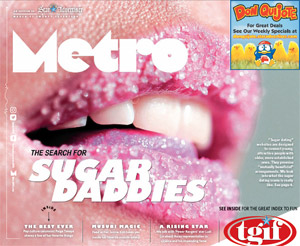Cultural Minefield
A day hardly goes by without news of another celebrity walking blindly into a cultural appropriation storm.
This week alone saw Justin Timberlake getting ripped over his blithe reaction to Jesse Williams’ BET speech and Vanessa Hudgens being called out for the 8,930th time about borrowing Native American iconography as throwaway fashion (this time it was a dreamcatcher in her hair).
Your reaction to these stories will likely fall into one of two camps: 1) you will agree that these situations are just the newest of an endless trend of insensitivity and ignorance or 2) you will wonder why the hell everyone is just so damn sensitive nowadays because how can you put ownership on something as nebulous as culture anyway.
Cultural appropriation involves one culture taking and using elements from another — particularly when there is a power differential between the two parties.
So in the oft-used example of Native American iconography, non-Native American girls wearing headdresses as fashion statements is appropriation because it fails to recognize the original context of the headdress, and also dismisses centuries of racial strife, subjugation and suffering.
I doubt anyone at Coachella was thinking about any of that when they put it on, but sometimes intent is irrelevant.
That’s pretty straightforward, though. Things get murkier when you start wading through questions of black culture and music, and whether all these white stars like Timberlake should be taken to task.
I saw an article decrying Meghan Trainor’s sudden “blaccent” in No — backed up with linguistic analysis of African American Vernacular English. (I have to admit that I hadn’t realized she sung that song either; all this time I thought it was just some new singer I hadn’t heard of.)
One argument asks how we can place ownership on something as pervasive and widely spread as music, or whom precisely we are supposed to ask for “permission” before we draw on the rich, sprawling legacy of R&B. Creative production necessarily borrows and pulls elements from what has come before.
But homage becomes appropriation when a white man gets applause for doing something a black man would — when white people use black practices and reap the benefits without the burden of the rest of black identity in America.
It’s not an easy line to draw. Sometimes it devolves into cultural policing, which is also unfair. It’s not easy to accept, either, especially if you aren’t part of a minority culture. Nobody wants to hear that they were insensitive, even unintentionally.
But responding like Timber-lake did — the “we’re all people” argument — is a deliberate step to erase the power of diversity, of difference. We’re all people, yes, but we’ve had different experiences. The experience of a white woman is not the experience of a black woman or a Latino woman.
We cannot pretend that does not matter.
PTAKEYA@MIDWEEK.COM
TWITTER: @LORDMAYOCLOUD


